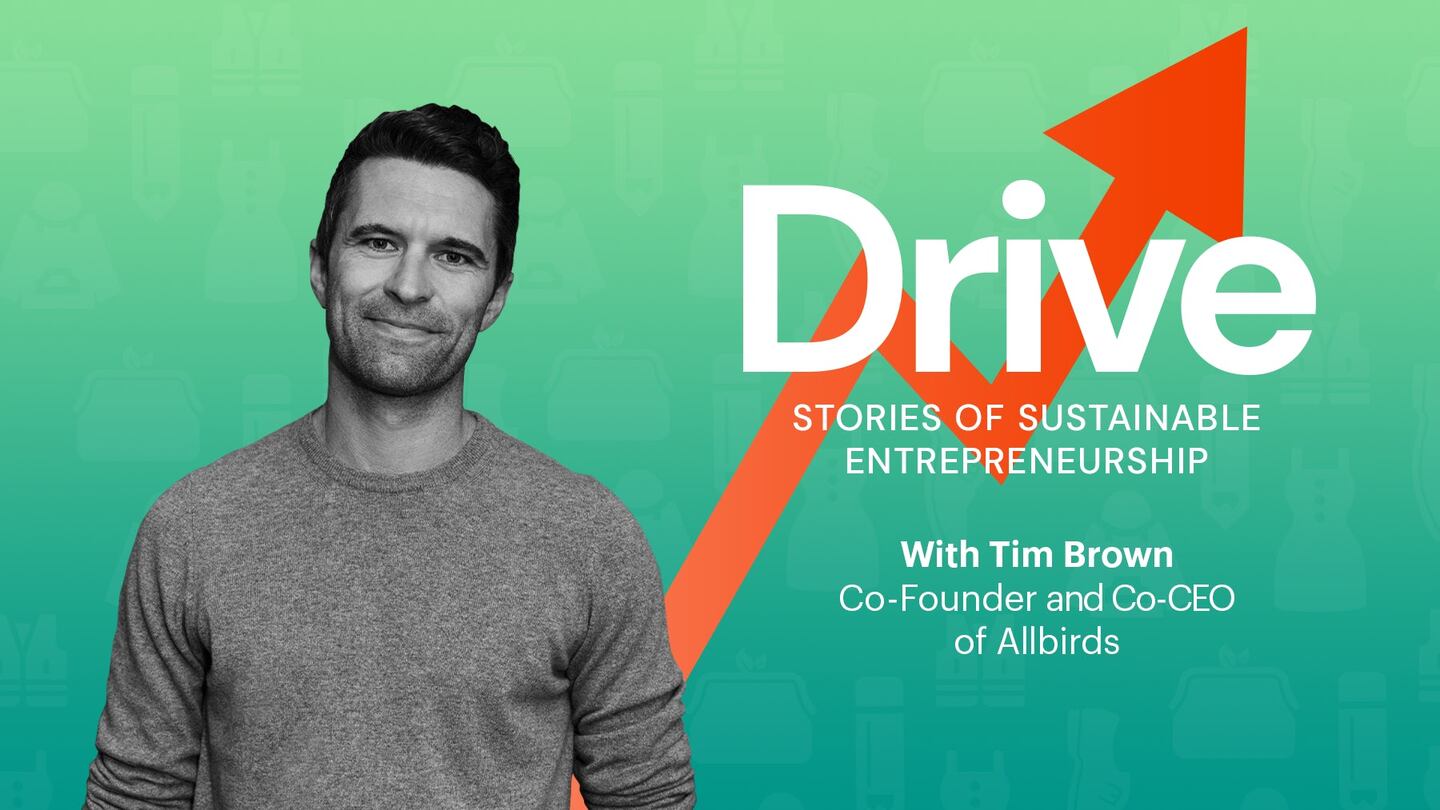
The Business of Fashion
Agenda-setting intelligence, analysis and advice for the global fashion community.

Agenda-setting intelligence, analysis and advice for the global fashion community.

Subscribe here to never miss an episode.
LONDON, United Kingdom — In a new season of Drive, BoF's entrepreneurship podcast series, we meet some of fashion's most dynamic leaders who are building sustainable businesses.
First up is Tim Brown, the co-founder and co-CEO of Allbirds, the San Francisco-based direct-to-consumer footwear brand he launched in 2016 as a registered a B-Corporation, which announced its intention to become carbon neutral this year. Allbirds sold over a million pairs of shoes in the two years following the initial launch.
Raised in New Zealand, the former professional footballer spotted an opportunity to disrupt the footwear market using a previously untapped material: wool. “This was actually about a revolution in sustainable manufacturing, in a category in fashion that had an enormous problem to solve,” Brown tells BoF, “and we were hugely energised by that challenge.”
It took almost a decade to the release Allbirds’ first product to market, and the journey was tumultuous. From assembling his team, to iterative product development and raising investment, Brown sought out and developed strategies for each that supported his sustainable ideals.
Brown’s story embodies the special kind of passion, resilience and discipline that we call Drive. This season, however, each entrepreneurial journey is interwoven with sustainable and environmental insights and lessons our community can learn from.
To subscribe and never miss episode of Drive please follow this link.
To contact The Business of Fashion with comments, questions, or speaker ideas please e-mail podcast@businessoffashion.com.
Subscribe to BoF Professional for unlimited access to BoF articles, plus exclusive benefits for members. For a limited time, enjoy a 25 percent discount on the first year of an annual membership, exclusively for podcast listeners. Simply, click here, select the Annual Package and use code PODCAST2019 at the checkout.
Traces of cotton from Xinjiang were found in nearly a fifth of samples from American and global retailers, highlighting the challenges of complying with a US law aimed at blocking imports that could be linked to forced labour in China.
The fashion industry continues to advance voluntary and unlikely solutions to its plastic problem. Only higher prices will flip the script, writes Kenneth P. Pucker.
The outerwear company is set to start selling wetsuits made in part by harvesting materials from old ones.
Companies like Hermès, Kering and LVMH say they have spent millions to ensure they are sourcing crocodile and snakeskin leathers responsibly. But critics say incidents like the recent smuggling conviction of designer Nancy Gonzalez show loopholes persist despite tightening controls.